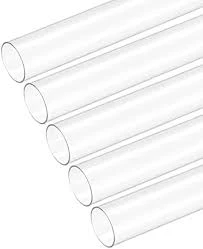Sep. . 09, 2024 02:38 Back to list
hdpe sheet cost
Understanding the Cost of HDPE Sheets Key Factors and Considerations
High-Density Polyethylene (HDPE) sheets have become increasingly popular in various industries due to their versatility, durability, and resistance to chemicals and impacts. As businesses and consumers look for cost-effective solutions for projects ranging from construction to manufacturing, understanding the factors that influence the cost of HDPE sheets is essential.
Material Characteristics
The intrinsic properties of HDPE greatly contribute to its cost. The polymer is known for its high tensile strength, low moisture absorption, and excellent impact resistance. These characteristics make HDPE sheets ideal for applications such as outdoor signage, industrial applications, and even food processing environments. The higher the quality of the HDPE material, the more expensive it may be, as premium products often offer better performance and longevity.
Thickness and Size
Another significant factor in determining the cost of HDPE sheets is the thickness and size of the sheets. HDPE sheets come in various thicknesses, typically ranging from 1/8 inch to several inches. Thicker sheets are generally more expensive due to the increased material usage and enhanced durability they provide. Furthermore, larger sheets typically result in higher costs, though this may vary depending on the supplier's pricing structure.
Customization and Color
hdpe sheet cost

Custom orders can significantly affect the price of HDPE sheets. Many suppliers offer a variety of colors and custom sizes, which can lead to higher costs compared to standard sheets. The addition of colors may involve specific coloring processes that can increase production expenses. If a project requires specific dimensions or additional fabrication (such as cutting and drilling), these customization options will further contribute to the overall cost.
Supplier and Location
The choice of supplier also plays a crucial role in determining HDPE sheet costs. Different suppliers have varying pricing strategies based on their overhead costs, material sourcing, and production methods. Additionally, geographical location can impact costs due to shipping and handling fees. Buying from local suppliers may reduce transportation costs, whereas purchasing from distant vendors might incur higher shipping fees.
Market Trends and Economic Factors
The cost of raw materials and market demand can fluctuate, impacting HDPE sheet prices. Economic factors such as oil prices (since HDPE is a petroleum-based product) and changes in supply chain dynamics can lead to price increases. Demand trends in various industries also affect pricing; high demand for certain applications may lead to elevated costs.
Conclusion
Understanding the cost of HDPE sheets requires a comprehensive look at various factors, including material quality, dimensions, customization options, supplier variations, and market conditions. By evaluating these aspects, businesses and consumers can make informed decisions that align with their budget and project needs. As the demand for HDPE continues to grow, staying informed about these factors will help ensure that investments in this material yield the best return.
-
Premium CPVC Sheet: High-Temp & Chemical Resistant Solutions
NewsAug.15,2025
-
Durable PPR Pipe for Hot & Cold Water Systems - Easy Install
NewsAug.14,2025
-
Durable HDPE Sheet | Versatile & Impact-Resistant Plastic
NewsAug.13,2025
-
Premium PVC Soft Sheets: Clear, Flexible & Durable
NewsAug.12,2025
-
Premium PVC Round Rods: Durable, Chemical Resistant, Easy to Machine
NewsAug.11,2025
-
PP U-channel: Chemical-Resistant, Lightweight & Durable
NewsAug.10,2025

